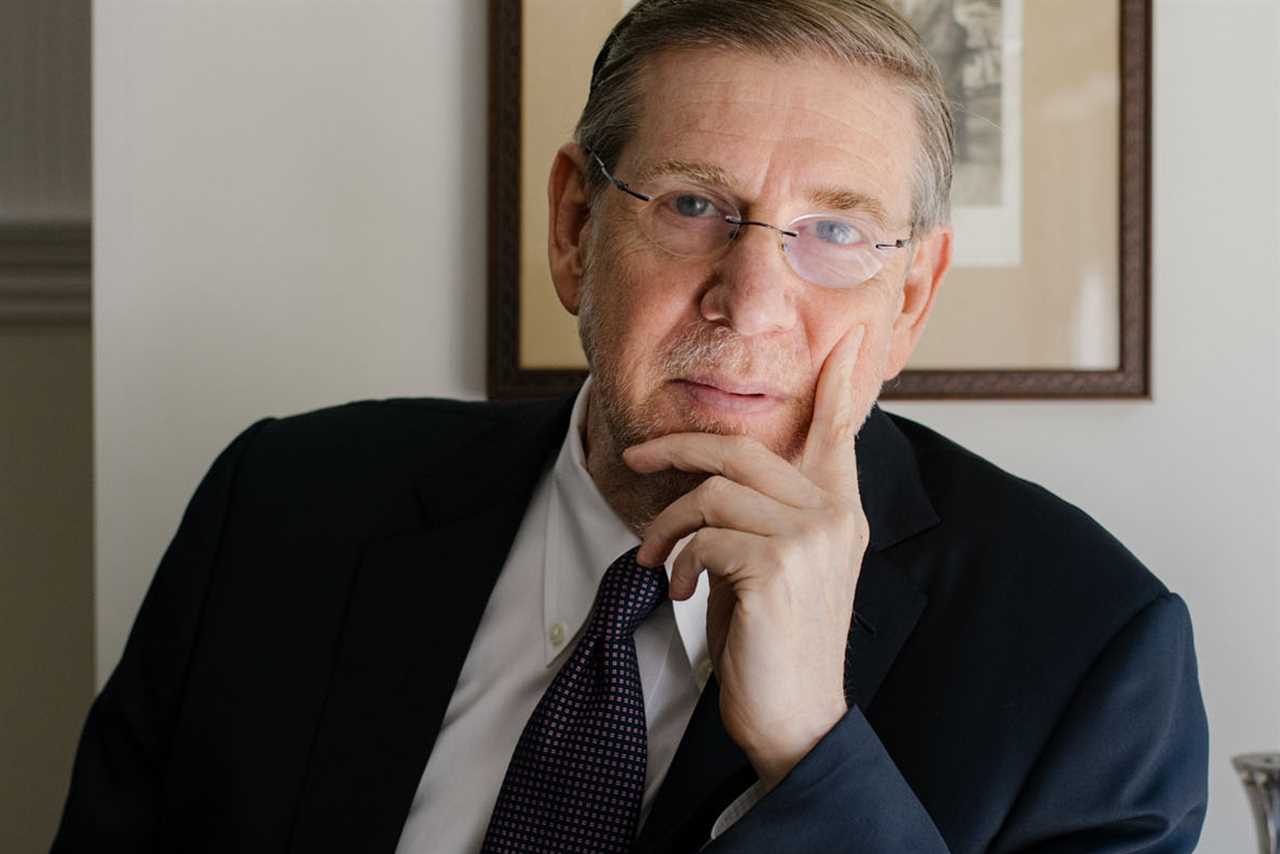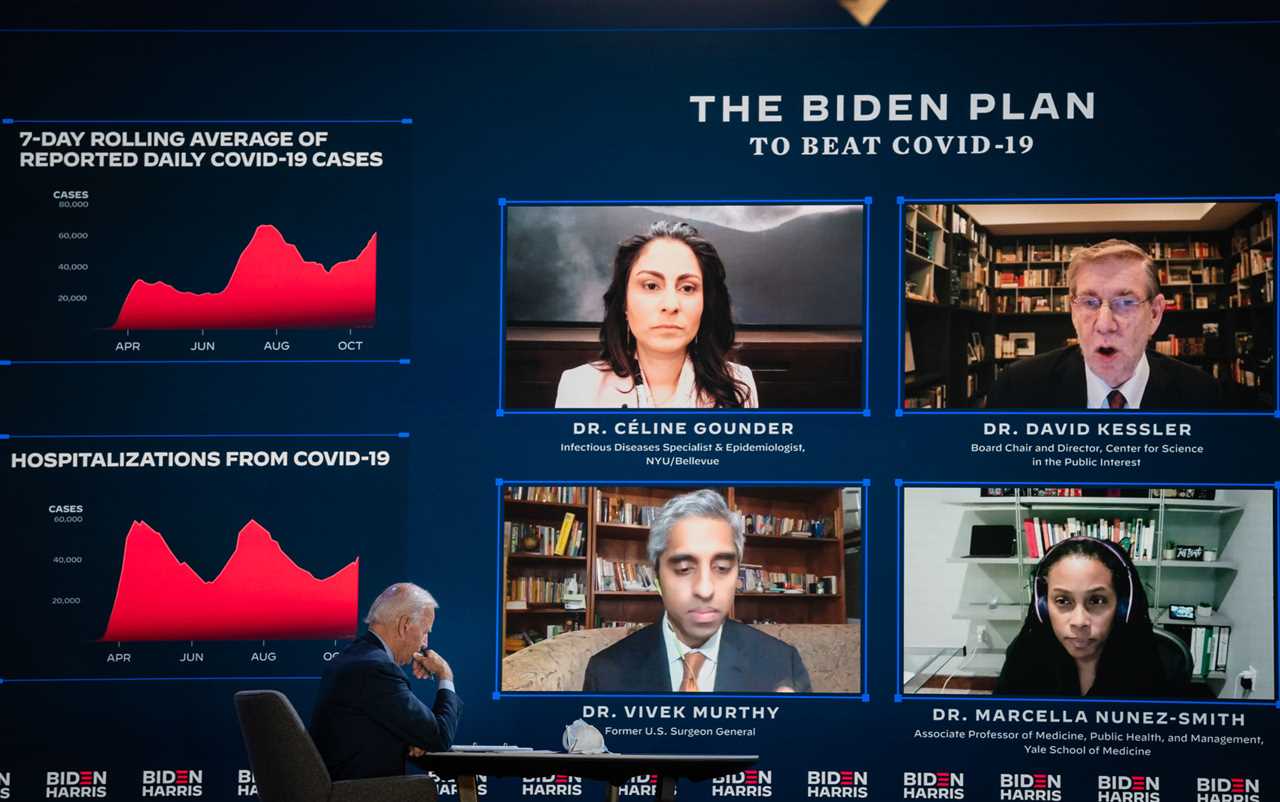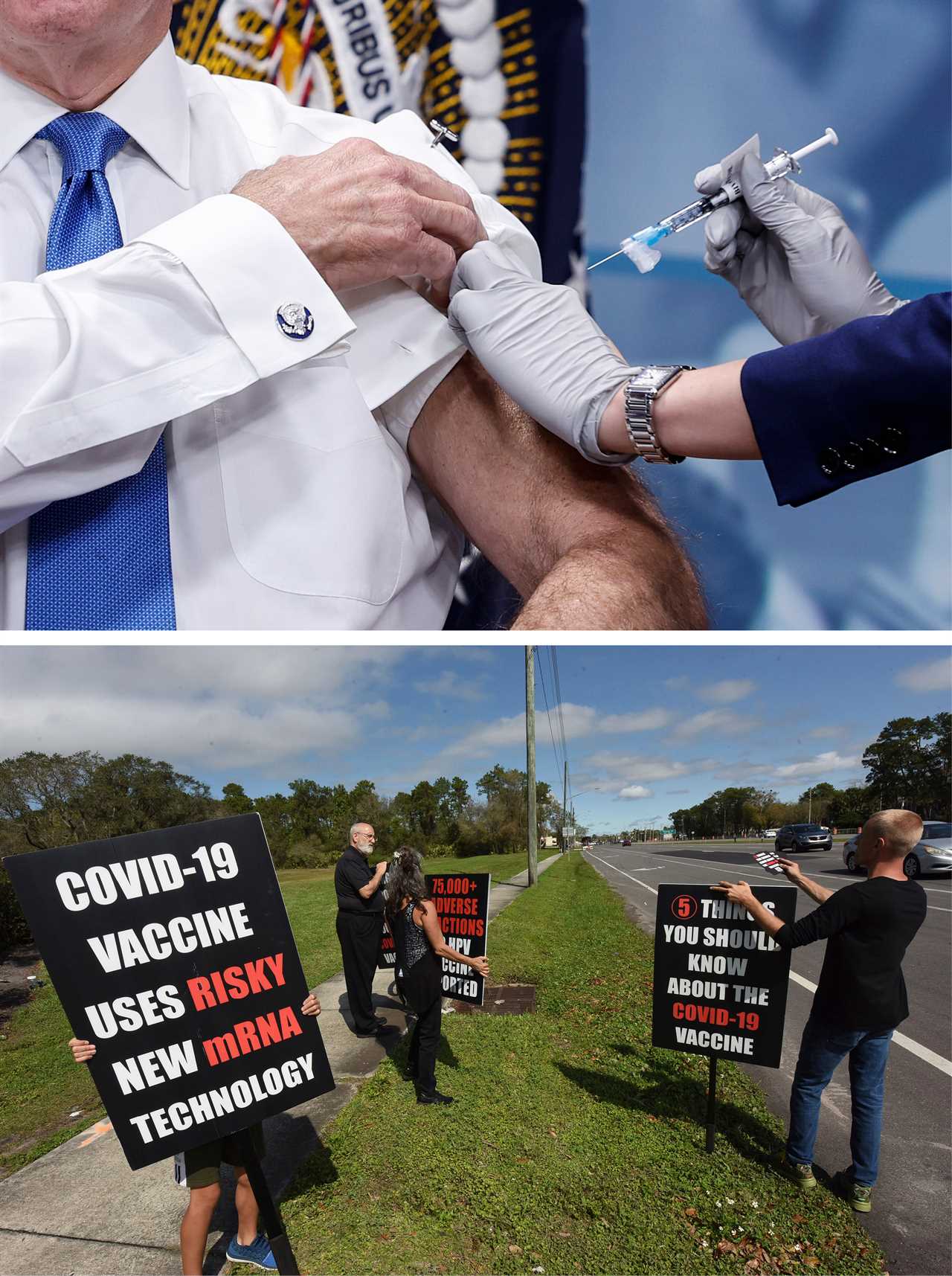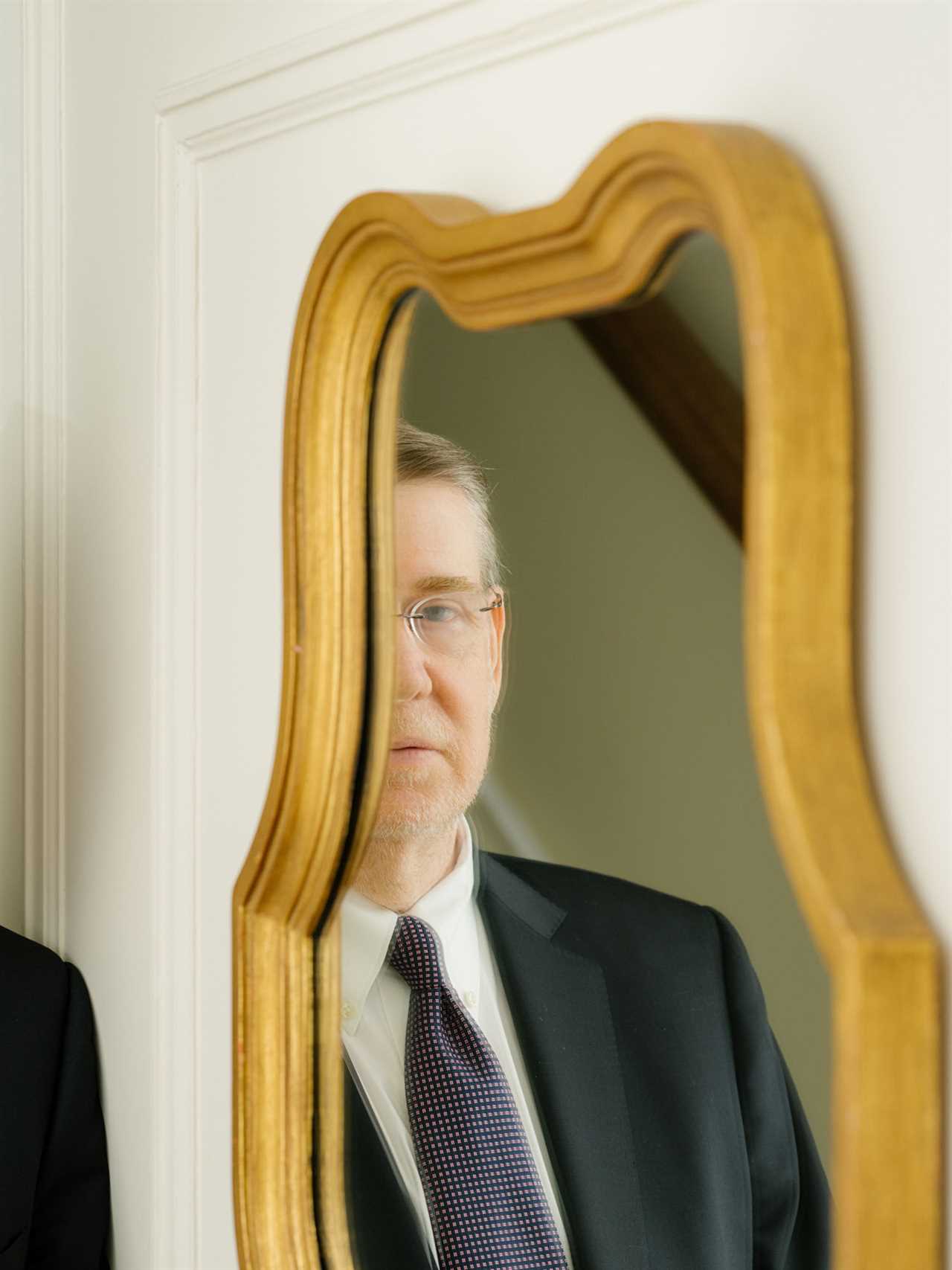
When a terrifying new virus shut down the country in March 2020, Joe Biden turned to David Kessler for advice.
A former FDA chief who served under two presidents of different parties, Kessler was someone who instinctively understood both science and politics. He began tutoring Biden regularly on the pandemic during the presidential campaign, offering blunt warnings about the growing threat to the country — and to Biden himself — as they faced a once-in-a-century crisis.
Kessler would remain at Biden’s side for the next two-plus years, going on to serve as chief science officer for the White House’s Covid response. Charged with paving a way out of the pandemic, Kessler oversaw the development and distribution of the first generations of Covid vaccines and therapeutics. More than 660 million shots have since been delivered, blunting the virus’ worst effects and allowing most people to return to their pre-pandemic lives.
But that process also took a toll on the American psyche, deepening partisanship over the government’s role in public health and fueling conspiracy theories around the vaccines. Covid also remains a danger to the more vulnerable among us, even as much of the country eagerly moves on.

In his first extended interview since leaving government a few weeks ago, Kessler lamented the politicization of the vaccines, arguing that the Trump administration deserves more credit for developing the shots in record time and criticizing those on the right who “inject doubt” over their effectiveness.
Yet he also conceded that the government made damaging mistakes at critical junctures, and that only feeds the charlatans. “When you play at these levels, you have to get it right the first time,” he said. “There are no do-overs.”
I spoke with Kessler in his Maryland home on what turned out to be the day Biden announced plans to end the nation’s official Covid state of emergency. He told me about how the anti-vax rhetoric echoes the tobacco industry, why he’s optimistic that the politicization of public health won’t last and why it’s important to find common ground with Tucker Carlson.
This interview has been edited for length and clarity.
Adam Cancryn: You just left a Biden Covid response that you were a part of from the very beginning. How do you feel about where we are as a country right now in terms of the state of this pandemic?
David Kessler: The day I got called in, it was a Friday, mid-March 2020. It was [senior Biden adviser] Anita Dunn who called and said, “Can you help?” We assessed the situation and by about 4 o'clock we said, close down headquarters, everyone home.
Then that weekend I got a phone call from [Biden policy director] Stef Feldman, who asked if I’d be willing to brief the boss beginning that Monday, and would I do it with [now-Surgeon General] Vivek Murthy? He was being briefed by his economic team and national security team, but he realized he didn’t have a public health team.
We met close to daily for eight months. The hardest thing, the thing that has remained the hardest, and it’s humbling, is the ability to project what’s next. I don’t think I was good at it back in 2020 and I still feel the same three years later.
But for the majority of Americans, they can live with Covid. It’s still a serious disease — and for the immunocompromised and elderly it can be life threatening. The virus is still going to evolve. A majority of experts believe it’s going to be with us for a considerable period of time. But I think it is unlikely — not impossible — that its virulence will increase dramatically. So it was a terrifying disease, and for the majority of Americans that’s no longer the case. That’s all good news.
Cancryn: When you think of where we are and how we got to this point in the pandemic, how does it compare to what you envisioned first starting out back in 2020?
Kessler: There was a moment when we were briefing the [former] vice president where we realized the number of cases and deaths and hospitalizations was likely to increase dramatically by the time of the inauguration in 2021. No vaccine had been authorized. It was, what are we going to do?
I remember — it was one of the more impertinent comments that I made —when I said. “I’ll make you a deal, Mr. Vice President. You become elected president, we’ll take care of vaccines and drugs.”

And that’s what we did.
Cancryn: You spent a good deal of time briefing President Biden when he was still a candidate. What is he like in those kinds of intimate settings?
Kessler: Vivek and I, it was just the two of us. We would walk in with a briefing book, maybe 60, 70, 90 pages. We would get to 40 minutes or so and say, “Mr. Vice President, we’re out of time. Should we pick up later?” And he’d say, “No, keep on going. I need to know this stuff.”
Some presidents like to read documents. He likes to do it with experts. We set the foundation so when he was elected president, there was a plan. Everybody knew the issue was central, that it was front and center. I don’t think any of us understood how many chapters still were to be written.

Cancryn: The first five or six months of the Covid response seemed like they went about as smoothly as —
Kessler: [Laughs] I don’t know where you were. It didn’t just happen, let me assure you. Enormous kudos to my predecessors, but the major bet was on the AstraZeneca vaccine. Three hundred million doses were purchased and that was not the mainstay of the effort. So there was an enormous effort just on the manufacturing side to be able to deliver a quality and safe product.
Cancryn: Well, one of the complaints from folks in the Trump administration is that they feel like they never got the credit they should have for standing up Operation Warp Speed. That they essentially developed the vaccines and set the table for their delivery. Do you think that’s fair? Do they deserve more credit?
Kessler: There was an op-ed in the New York Times earlier this month that said, and I’ll read it: “The great success of the pandemic was Operation Warp Speed. … The rush to develop, produce and deliver vaccines is the signal American achievement of the pandemic — so consequential it is a pretty persuasive rebuttal to anyone decrying the country’s failure to stem the pandemic.”
Cancryn: You agree with that?
Kessler: Yes.
Warp Speed, whatever you call it, I hope everybody can agree, both sides of the aisle, that it was a singular success, one of the singular successes of the pandemic. That we all can learn from it.
Cancryn: The Biden administration made two controversial decisions early on — one was to change the name of Warp Speed, and the other was complaining that the prior administration had left it nothing, no plans for handling the next stage of the response. Was that fair at the time?
Kessler: Sure. There was not a distribution plan, there was not a lot of vaccine to distribute. But the fact is, I think we have shown — my predecessors and colleagues that I’ve worked with — that we know how to accelerate the development of lifesaving treatments when there’s an enormous amount at stake.

Cancryn: By the summer of 2021, you had gotten vaccines out, had built this distribution mechanism and hit some initial goals. As that’s happening and you’re seeing cases go down, did it feel like you were done?
Kessler: There’s no doubt when cases are coming down you start breathing a little easier. But you’re bracing yourself for the next one and no one knew exactly when the next variant was going to come. We just didn’t know. The data was coming in day by day, and the hard part is, sometimes the data was coming in weeks after you needed the data.
Cancryn: Is that what happened with the decision to do the July 4 celebration of “freedom from the virus?” Did that feel premature to you?
Kessler: That was decided about a month or six weeks prior. But there was clearly an unease. We didn’t know it was going to be Delta, but no one was sure and no one could be sure. And I think people learned from that that they weren’t going to predict anymore.
Cancryn: Have you been surprised by how partisan things became around Covid and the vaccines, and how quickly that happened?
Kessler: Yes and no. The degree to which vaccines and masks became a partisan issue I think leaves a lot of us scratching our heads, trying to understand why. But in the context of everything being hyper-partisan, maybe we shouldn’t have been so surprised.
Cancryn: Was there anything that could’ve been done to prevent that? Or is this just where our broader politics have been trending?

Kessler: A lot of things contributed to people’s feelings about the virus and the vaccines. I don’t think we should underestimate the effect that the last several years has had on all of us. It was a major upheaval for society and there’s not a family that’s not been affected. Anything that is that traumatic, it’s going to produce very strong feelings.
The fact is that 226 million people received their primary series, and 94 percent of people over 65 got vaccinated. When’s the last time 226 million people agreed on anything, did anything?
We have to be realistic on what people are going to do. There are a lot of things in public health we wish people would do that they don’t. Taken as a piece, we did pretty well, considering the extent of the upheaval caused by this pandemic.
Cancryn: What about these politicians, lawmakers and pundits who have made it their brand to question that progress, to question the vaccines and the need for there to be a continued response?
Kessler: Here’s the hard part. Questioning is an inherent part of science. Questioning is always important to learn and improve what we do.
But there’s a difference between questioning and undermining the basic facts. Creating enough doubt so people go, well, maybe I don’t need to do this.
I’ve lived this before. In 1952, with the first data that smoking caused cancer. The mantra of the industry was, “not proven, not proven, not proven.” It created enough doubt that it gave people a crutch who didn’t want to quit. It gave them a reason to continue to smoke.
These vaccines are not perfect. But certainly, if you’re over 50, if you have any risk factors, the benefit/risk [ratio] is just overwhelming. So yes, ask questions. But please make sure that people who need this, whose lives are really at risk, take advantage of a very important potentially lifesaving tool.
Cancryn: That’s interesting that you’re seeing parallels to the playbook from tobacco.
Kessler: I don’t think that’s intentional. I just think that one has to be careful when one injects doubt in people’s minds. If you inject that doubt, it just makes the job that much harder to get people to do stuff when it’s already hard to get people to do things that are in their health interest.
Cancryn: The difference this time around is that a lot of those injecting that doubt are now the leaders of one of the two main political parties.
Kessler: There are certainly those who are using it for whatever rhetoric, but I think a majority of the country will push that aside. The fact is, 226 million people got the primary series. Push comes to shove, many of those who are being critical of vaccines, I think quietly they’ve gotten the vaccine.
Cancryn: So you feel some level of optimism that when it comes to public health and science, most of us are still operating with the same set of shared facts.
Kessler: The last three years have been so intense, the stakes have been so high, we’ve learned so much. We made mistakes. I just think, give it time. But no doubt we have to do a better job on disinformation, because this virus is not done with us yet.
Cancryn: Do you feel like there’s an identifiable solution to that disinformation? Take Tucker Carlson, for example, who has a big audience and has proven willing to question and inject doubt into just about anything. It doesn’t worry you that he has a platform to take things that should be scientifically settled, bring them up and question them again?
Kessler: I saw my job as making sure if you wanted a vaccine, if you wanted an antiviral, it was there, it worked, you didn’t have to live in fear that you were going to die from this disease. I did very few public appearances; others did that.
But very early on I said to someone I’m close with that I really wished I could go on Tucker Carlson and have that conversation.

Cancryn: Why?
Kessler: Because at the end of the day, I think we believe in rationality and we can find some common ground. There’s always an ability to do that, and maybe we can get back to that. You’d like to believe that this country’s true competitiveness and greatness is because we know how to solve problems together. It’s something we can’t lose.
Cancryn: In terms of the Covid response, what’s still left to be done?
Kessler: We need a next-generation vaccine. We have one very good antiviral, but there are drug interactions associated with it that mean some people cannot take that drug, so we need another antiviral. And there’s always the possibility of resistance developing, so we need improved vaccines and improved therapies.
Cancryn: And what’s your evaluation of agencies like the FDA and CDC? There’s been a lot of criticism over messaging and changing direction on things like masks. How do you feel they have done?
Kessler: I think it comes down to leadership and people. Look at a Peter Marks, who runs [FDA’s drug development center]. We would have very strong back and forth, we debated, but he was always looking around the corner. He knew what he needed to do not only today, but he knew what he needed to do down the road and was ready for the curveballs that would be thrown.
Was the federal response as good as that, uniformly? No. But I think there were some very exceptional bright spots. John Mascola, who ran the [National Institutes of Health’s] Vaccine Research Center, was also highly strategic. There were some extraordinary examples that people should be very proud of. I think there’s always areas where not having the data soon enough and not being set up to get that data soon enough also had real costs.
Cancryn: Are there decisions where you look back and say, “I’d love a do-over on that one?”
Kessler: I’ve learned that when you play at these levels, you have to get it right the first time. There are no do-overs. You can’t get it wrong. You get it wrong and it undermines confidence, it’s fodder for those who are looking to stir things up.
There are times where certain things were said at the time that were thought to be true, but then didn’t hold. Anyone can get it right when they have all the data. The problem with these jobs is, you have to get it right when you don’t have all the data, and if you make a mistake you end up paying dearly. This was intense enough that the reality is mistakes got made.
Cancryn: Do any stick out as particularly damaging in that way?
Kessler: Certain of my colleagues said that if you have the vaccine, you won’t infect other people. That might have been pretty true early on. But when the virus evolved and transmissibility changed, it only protected against serious disease and death. And that is still probably the thing that could’ve been done better.
Cancryn: Is this it for you in terms of public service? Are you done?
Kessler: I grew up a part of the generation where it was very important to serve. But I also believed one went in and served and one left.
My hat’s off to my colleagues who are willing to spend their careers in federal service, or any kind of public service. They are heroic in what they do. But I’ve always believed you go in, you do your job and then you step back. The last few years have been pretty intense. When I was at FDA, we did HIV, accelerated approvals for drugs, food labeling, tobacco investigations. Never did I ever think that something else could match that level of intensity. But this was it.

Cancryn: Having seen the level of politicization around Covid, how do you feel about the government’s ability to handle the next pandemic?
Kessler: Well, no one got in our way.
Cancryn: How do you mean?
Kessler: The politicization, sure it was out there, but we still made sure there were vaccines on every corner. We still made sure there were enough antivirals. There was a job to be done and it was very important for us to work on a bipartisan basis. If you look at the legislative chairs in both the majority and the minority, I think we had very strong relations and they let us get the work done.
Cancryn: But what about the way things evolved, with funding for the response now getting cut off?
Kessler: You’re right that our effort was of a piece. We were able to have free, safe and effective vaccine and antivirals for three years available to the American public.

But yes, there need to be more dollars for next generation vaccines and therapeutics. There’s a lot more to be done. Commercialization sounds pretty bureaucratic and mundane but a lot can go wrong. Having vaccines at a price people can afford is going to be a big challenge. There’s going to be ups and downs.
But this was a once-in-a-century pandemic. We broke glass, and government was able to function in a way that decisions were highly streamlined. There were very few decision points. When I was at FDA, we had maybe 150 people between me and the president of the United States. The way this was done, there were maybe two.
----------------------------------------
By: Adam Cancryn
Title: Biden’s Top Covid Adviser Wishes He Had Tangled with Tucker Carlson
Sourced From: www.politico.com/news/magazine/2023/02/06/biden-covid-adviser-david-kessler-00081091
Published Date: Mon, 06 Feb 2023 04:30:00 EST






